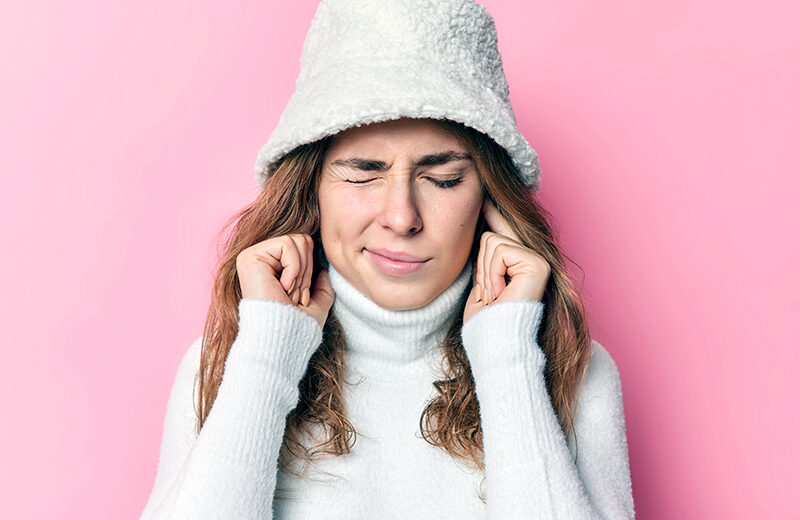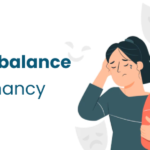If you’ve ever stepped outside on a chilly day and experienced sharp pain in your ears, you’re not alone. Cold weather can cause discomfort in your ears due to various reasons, such as temperature sensitivity, poor circulation, or even underlying health conditions. This article delves into the causes of ear pain in cold weather, remedies to ease the discomfort, and preventive measures to keep your ears warm and pain-free.
What Causes Ear Pain in Cold Weather?
Ear pain in cold weather is usually due to the sensitivity of the ears to changes in temperature. Let’s explore the primary causes:
1. Nerve Sensitivity
- The outer ear (pinna) contains nerves that are sensitive to cold temperatures.
- When exposed to freezing weather, these nerves can send pain signals to the brain, causing discomfort.
2. Cold-Induced Constriction of Blood Vessels
- Cold temperatures cause blood vessels to constrict (vasoconstriction).
- This reduces blood flow to the ears, leading to a feeling of pain or discomfort.
3. Eustachian Tube Dysfunction
- Sudden temperature changes can affect the eustachian tube, which regulates pressure in the middle ear.
- If this tube doesn’t function properly, it can cause ear pain or a sensation of pressure.
4. Frostbite or Chillblains
- Prolonged exposure to extremely cold weather can damage the skin and tissues of the ear, leading to frostbite.
- Symptoms include redness, swelling, and pain.
5. Wind Exposure
- Wind can amplify the effects of cold by stripping heat from the ears, causing them to ache.
Also read: Why Do I Cough When I Clean My Ears
Why Do Some People Experience More Ear Pain in the Cold?
Not everyone experiences the same level of discomfort in cold weather. Certain factors can make some individuals more susceptible:
- Thin Skin: People with thinner skin on their ears are more prone to feeling the effects of cold temperatures.
- Circulation Issues: Conditions like Raynaud’s disease can make blood vessels overly sensitive to temperature changes.
- Underlying Ear Problems: Pre-existing conditions like ear infections or eustachian tube dysfunction can exacerbate ear pain in the cold.
How to Protect Your Ears in Cold Weather
1. Wear Ear Protection
- Earmuffs or Ear Warmers: These provide an extra layer of insulation against the cold.
- Hats That Cover Ears: Opt for a snug, warm hat that fully covers your ears.
2. Layer Up
- Use scarves or neck gaiters that can be pulled up to shield your ears from icy winds.
3. Apply Petroleum Jelly or Moisturizer
- Protect exposed skin by applying a layer of petroleum jelly or a thick moisturizer to prevent windburn and frostbite.
4. Avoid Prolonged Exposure
- Limit your time outdoors during extreme cold, especially if the wind chill is high.
Also read: Why Is My Ear Numb
Remedies for Cold-Related Ear Pain
If your ears are already hurting from the cold, try these remedies for immediate relief:
1. Warm Compress
- Place a warm (not hot) compress over your ears to improve blood circulation and reduce pain.
2. Massage Your Ears
- Gently massage your ears to stimulate blood flow and ease discomfort.
3. Over-the-Counter Pain Relievers
- Medications like ibuprofen or acetaminophen can reduce pain and inflammation.
4. Keep Indoors Warm
- Avoid sudden temperature changes by ensuring your indoor space is warm and comfortable.
5. Hydration and Nutrition
- Stay hydrated and eat foods rich in vitamins and minerals to support circulation and overall ear health.
Common Ear-Related Conditions Exacerbated by Cold Weather
1. Ear Infections
- Cold weather can increase the risk of middle ear infections, especially if you have a cold or flu.
- Symptoms include pain, pressure, and difficulty hearing.
2. Tinnitus (Ringing in the Ears)
- Cold-induced changes in blood flow can aggravate tinnitus in some individuals.
3. Sinus-Related Ear Pressure
- Sinus congestion can worsen ear pain, particularly in cold weather.
When to See a Doctor
While ear pain in the cold is usually harmless, persistent or severe symptoms may require medical attention. Contact a healthcare provider if you experience:
- Severe pain that doesn’t subside with home remedies.
- Signs of frostbite, such as discoloration or blistering on the ears.
- Persistent ringing or hearing loss.
- Symptoms of an ear infection, including fever, drainage, or significant swelling.
FAQs About Ear Pain in Cold Weather
1. Why Do My Ears Hurt When It’s Windy and Cold?
Wind increases heat loss from the ears, intensifying pain and discomfort caused by the cold.
2. How Can I Prevent My Ears from Hurting in the Winter?
Wear insulated ear protection, limit outdoor exposure, and keep your ears moisturized.
3. Does Ear Pain from the Cold Indicate a Serious Condition?
Not usually, but persistent pain or associated symptoms like fever may signal an infection or other underlying issue.
4. Can the Cold Cause Long-Term Ear Damage?
Prolonged exposure to extreme cold can cause frostbite or permanent tissue damage if not treated promptly.
5. Are Certain People More Prone to Cold-Related Ear Pain?
Yes, individuals with circulation problems, thin skin, or pre-existing ear conditions are more susceptible.
Tips for Keeping Your Ears Healthy in Winter
- Stay Active: Physical activity boosts circulation, helping to keep extremities warm.
- Avoid Sudden Temperature Changes: Gradually transition between indoor and outdoor environments.
- Use a Humidifier: Prevent dry indoor air, which can irritate the ear canal.
- Dress in Layers: Protect not just your ears, but your entire body, to maintain overall warmth.
Conclusion
Experiencing ear pain in cold weather is common, but understanding the causes and preventive measures can help you manage this discomfort. From nerve sensitivity and poor circulation to environmental factors like wind, various reasons may contribute to this issue. By protecting your ears with appropriate gear, using remedies like warm compresses, and avoiding prolonged exposure, you can prevent and alleviate cold-related ear pain.
If your symptoms persist or worsen, don’t hesitate to seek medical advice to rule out underlying conditions. Keep your ears warm and safe this winter!
Disclaimer: The content on Wellness Derive is for informational purposes only and not a substitute for professional medical advice, diagnosis, or treatment. Always consult a healthcare provider for medical concerns.



